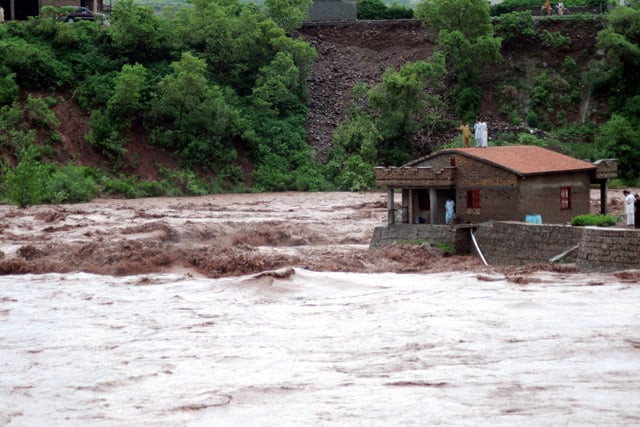Effects of climate change
Pakistan is among the countries that are paying the price for the polluting, carbon-consuming ways of the world.

It is estimated that the 2010 floods cost Pakistan nearly nine billion dollars, while this year’s flooding did economic damage of a similar amount. From the displacement of millions of people to the destruction of crops and livestock, Pakistan cannot afford such natural disasters occurring on a regular basis. The problem is that there is very little we can do to arrest the tide of climate change. By necessity, the solution to climate change must be global and have the full backing of every country in the world, particularly the worst pollution offenders like China and the US. And Pakistan has tried to do its best to adhere to the Kyoto Protocol and cut carbon emissions, an effort that earned it effusive praise from the UN earlier this year.
Rather than being defeatist about the matter, the Pakistan government should ensure that, even if it cannot prevent natural disasters, it is at least ready to tackle their effects. The earthquake of 2005 and the floods last year showed that readiness is still a distant dream. At a time when united, coordinated effort is needed, we have bureaucratic turf wars between the central disaster management authority and provincial governments, problems in disbursing aid and a general lethargy in responding to natural disasters. We should be preparing for the challenges of tomorrow, but instead are stuck in denial.
Published in The Express Tribune, December 1st, 2011.















COMMENTS
Comments are moderated and generally will be posted if they are on-topic and not abusive.
For more information, please see our Comments FAQ